Scotland:
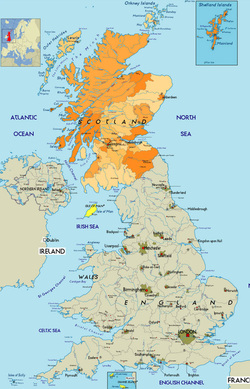
Scotland is in north-west Europe and it is part of Great Britain and the United Kingdom (UK) .
Scotland is a mountainous country in the north of the island of Great Britain and shares a land border to the south with England and is bounded by the North Sea on the east and the Atlantic Ocean on the west. Its capital city is Edinburgh.
Scotland has some 790 islands - 130 inhabited.
Scotland is famous for its fresh water lochs (lakes) – there are over 600 square miles of them. One of the most famous is Loch Ness where a mysterious monster is said to lurk in the depths of the water.
It is also famous for its clans, kilts, medieval castles, as well as poetry and songs of Robert Burns.
Theatre lovers from around the world come to Edinburgh for its famous theatres festival.
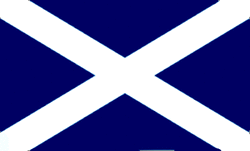
The National flag of Scotland
Edinburgh was the first city in the world which had its own fire-brigade.
Edinburgh – the capital of Scotland, like Rome, was built on seven hills.
Until 1603, Scotland (like England) had its own Monarch. In 1603, the King of Scotland became also the King of England ruling both countries.
Listen to a story: "Where's Nessie?"
Past Simple Tense
Games and activities:
(Thanks to agendaweb)
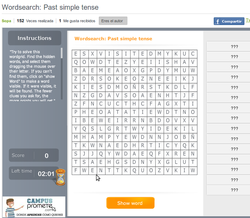
Wordsearch
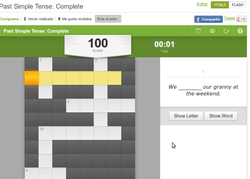
Crossword.
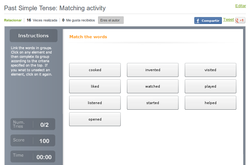
Matching activity
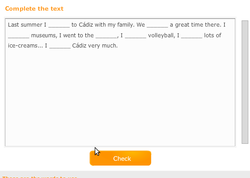
Fill in the gaps
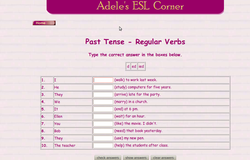
Type the correct answer

Matching activity II
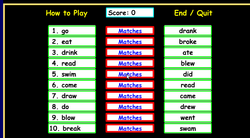
Matching pairs
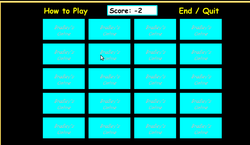
Concentration game
¡¡Os recuerdo a los alumn@s de 6º que tenéis que enviarme a mi correo, durante esta semana y la próxima, los pantallazos de haber realizado los juegos de Easter!! (Poned un poquito de interés y si en algún juego os da muy malos resultados, repetidlo y me mandáis el pantallazo de algún buen resultado). Happy Easter Holidays!!
...............................................................................
Games:
El día 1 de abril los/as alumnos/as de 4º, 5º y 6º de Primaria vamos a realizar una salida a la Casa de la Cultura para ver una obra de teatro en inglés (play). El año pasado también hicimos esta actividad y nos gustó mucho. ¡¡Así que vamos a repetir la experiencia!!
Esta vez la obra de teatro es: "The Legend of King Arthur" (la leyenda del Rey Arturo):
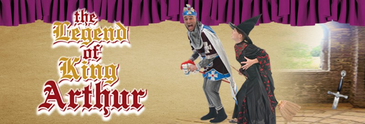
The year is 726 and England is desperately seeking a new leader. Arthur becomes King when he takes the mythical sword Excalibur from it's stone. From here on in he will have to confront Morgan Le Fay (his half sister) who wants to strip him of his power. At the same time Gwynevere, Arthur's new wife, knows where to find the famous Holy Grail that brings eternal liife to whoever drinks from it. Morgan kdnaps Gwynevere and takes her to her cave to get the information from her.. Arthur, his knights (some fortunate mebers of the audience) and Merlin the magician begin a desperate search for Gwynevere and the Grail. Join us on this hilarious adventure to find out who gets there first!

Every February we celebrate Valentine's Day by giving flowers, candy and cards to those we love. We do this in honor of Saint Valentine. You may be wondering, "Who is St. Valentine"? Time to brush up on your Valentine's history!
Legend has it that Valentine was a priest who served during third century Rome. There was an Emperor at that time by the name of Claudius II. Emperor Claudius II decided that single men made better soldiers than those that were married. With this thought in mind he outlawed marriage for young men in hopes of building a stronger military base. Supposedly, Valentine, decided this decree just wasn't fair and chose to marry young couples secretly. When Emperor Claudius II found out about Valentine's actions he had him put to death.
Another legend has it that Valentine was an imprisoned man who fell in love with his jailor's daughter. Before he was put to death he sent the first 'valentine' himself when he wrote her a letter and signed it 'Your Valentine', words still used on cards today.
Perhaps we'll never know the true identity and story behind the man named St. Valentine, but this much is for sure...February has been the month to celebrate love for a long time, dating clear back to the Middle Ages. In fact, Valentines ranks second only to Christmas in number of greeting cards sent.
Another valentine gentleman you may be wondering about is Cupid (Latin cupido, "desire"). In Roman mythology Cupid is the son of Venus, goddess of love. His counterpart in Greek mythology is Eros, god of love. Cupid is often said to be a mischievous boy who goes around wounding both gods and humans with his arrows, causing them to fall in love.
Games:
Things you can say/ write in a Valentine's card:
Be my Valentine.
I love you.
You are my best friend.
Be mine.
Each day I love you better.
...
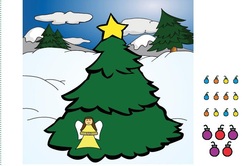
Decorate the Christmas tree.
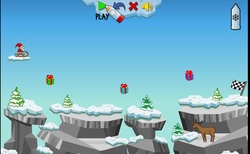
Draw snow lines with your mouse to guide Santa to the missing presents.

Are you naughty or nice? Let Santa decide! Take a quiz to determine if you should receive presents for Christmas.


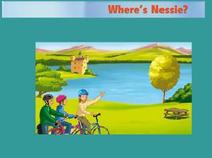








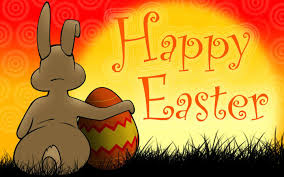


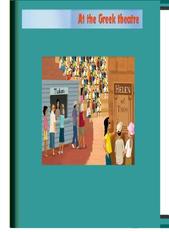
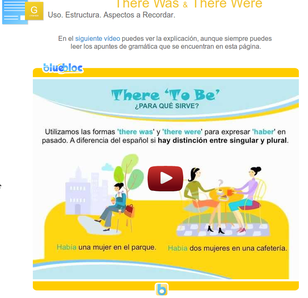



 RSS Feed
RSS Feed